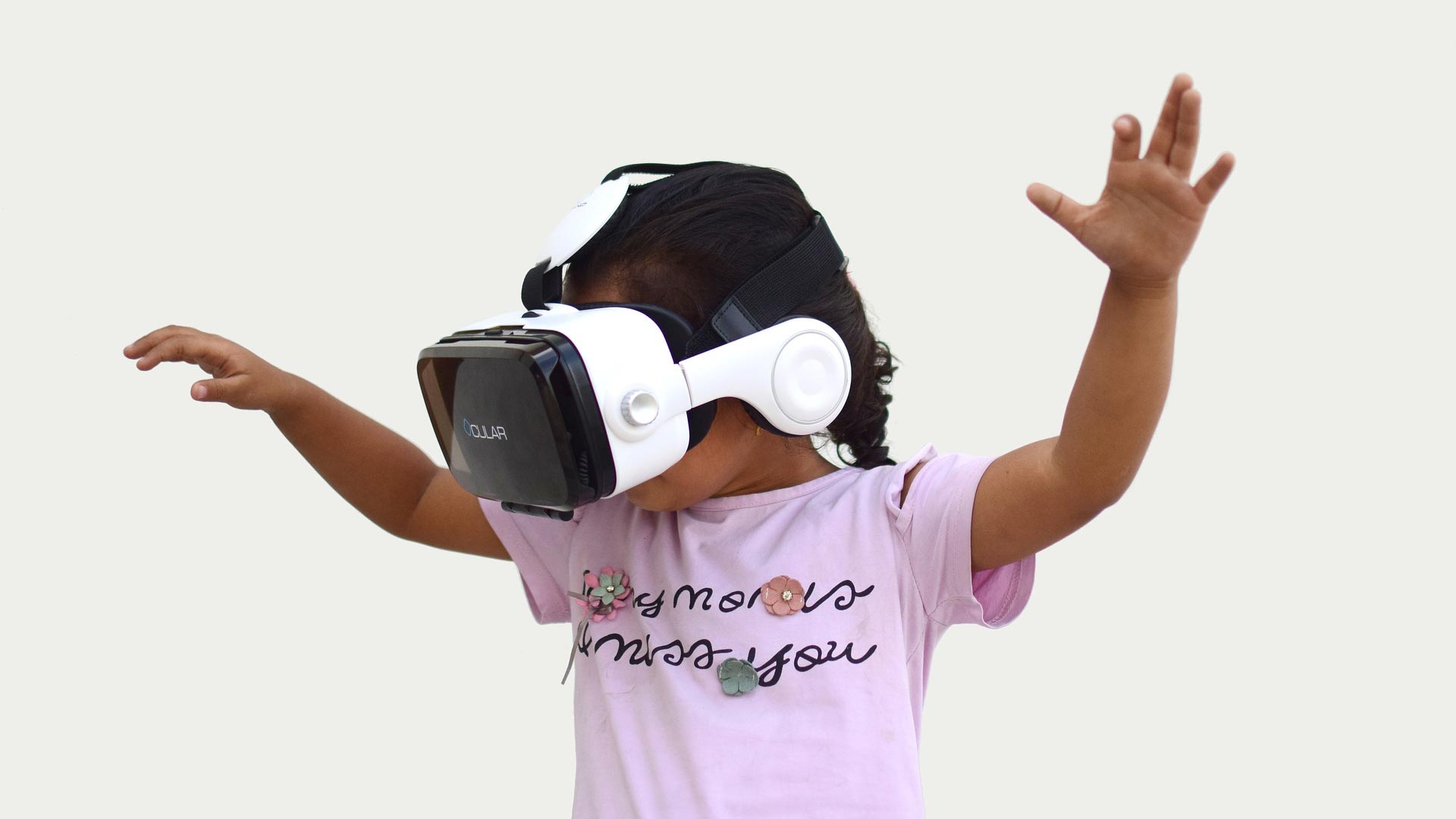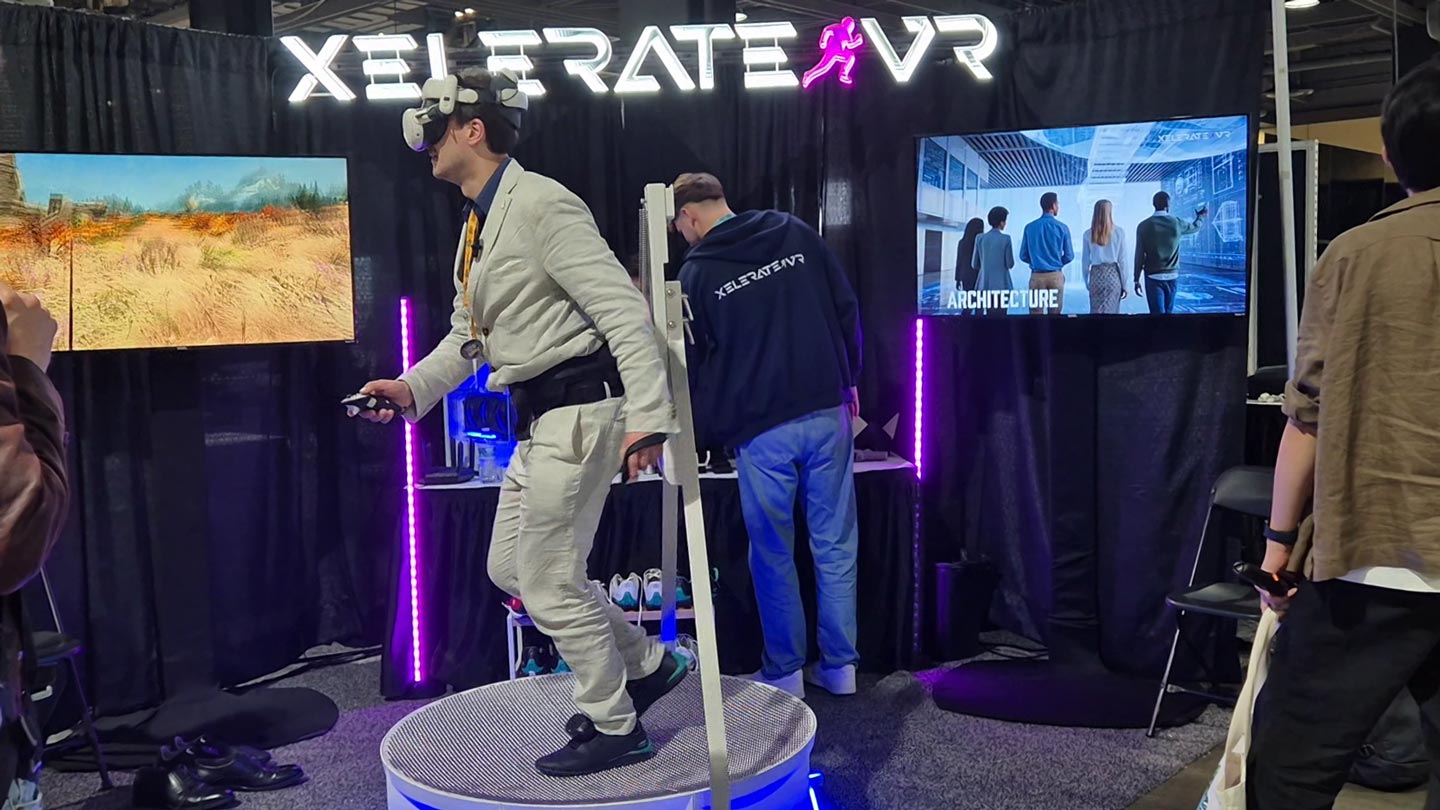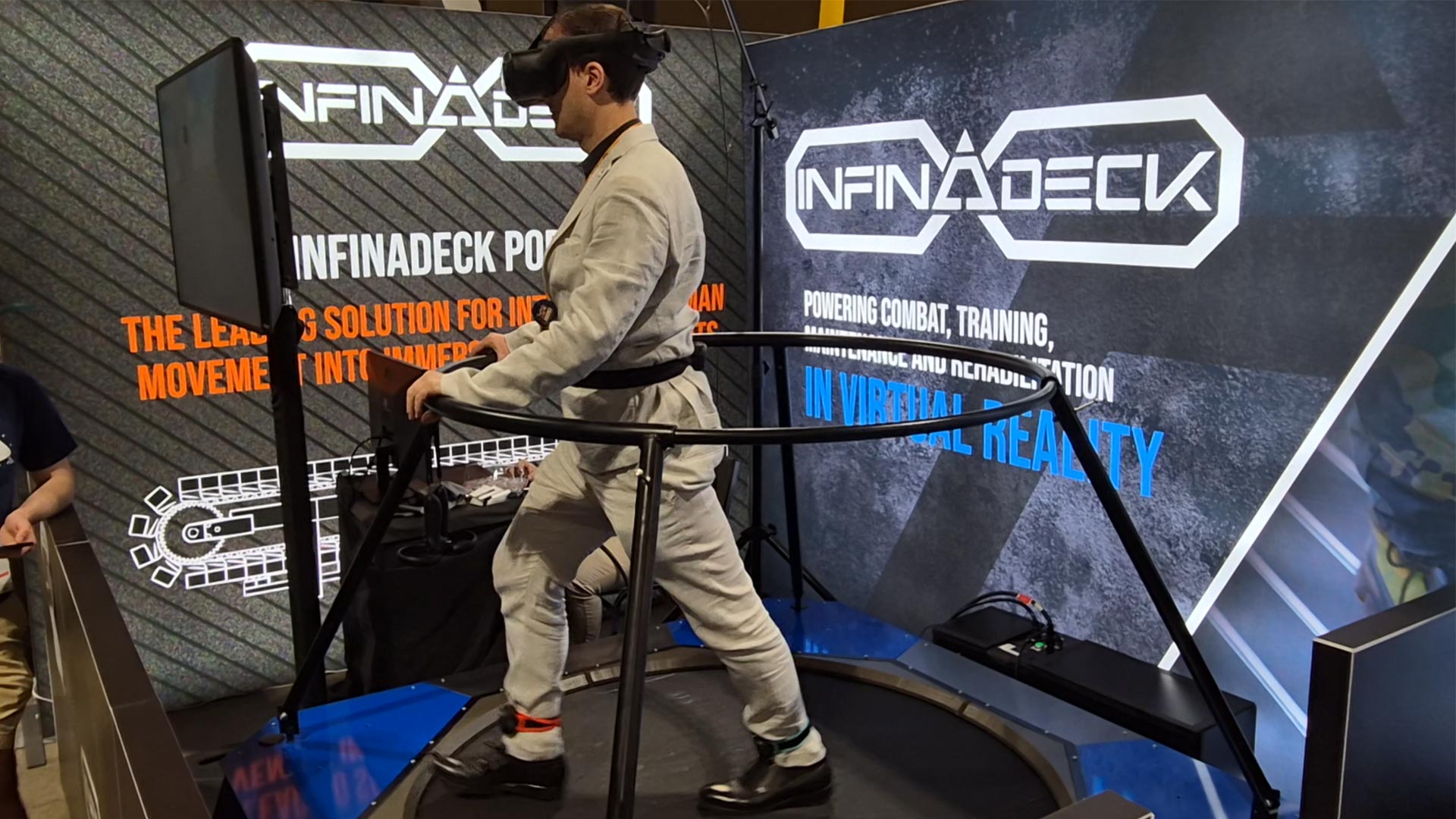Virtual Reality should acknowledge its “kids issue”
We just had our Christmas holidays, and it is common knowledge that Virtual Reality, and especially Quest 2, had its greatest day on Christmas. Many people received a Quest as a gift, and we all developers saw a big spike in sales of our products that day. My Twitter timeline on the 25th and 26th (of December) was filled with videos of kids unwrapping their Christmas gifts, discovering a Quest 2, and being super happy about it. I was very happy to see those scenes, but at the same time, I had a big question popping up in my head: “But… isn’t VR supposed to be forbidden until 13-14 years old?”
VR shouldn’t be used by children…

When I started using virtual reality in 2014, the age limit for using the Oculus Rift DK 2 was 7 years, but then it was incremented to 13 years old. While Oculus later admitted that there was not a scientific explanation for the exact number “13”, someone suspected that it had to do with the COPPA compliance:
COPPA imposes certain requirements on operators of websites or online services directed to children under 13 years of age, and on operators of other websites or online services that have actual knowledge that they are collecting personal information online from a child under 13 years of age.
Setting an age limit above 13 was a safer bet at a time when VR was still very rough, and also avoided the company to mess around with many rules related to services targeting kids. Furthermore, at that time, VR was something devoted to nerds, enthusiasts, and innovators, and there was not even much content that could have been interesting for kids.
Returning to the age limit, there are restrictions about the usage of VR by kids for the following reasons:
- Headsets are manufactured for adults, and may not offer the right IPD, and in general all comfort settings, for the little head of a child;
- We don’t know what effects could have the currently available VR, with a screen so close to the eye and the vergence-accomodation problem, to the eye of a kid that is still developing;
- The younger is the kid, the less can discern between the real and the virtual. So a 4-years-old kid trying a VR experience may think that what he did in VR was real, or at least be confused about all the situation;
- Kids could be influenced more than adults by what is said or what happens in a VR experience. This one side is positive for educational experiences, but can be dangerous for violent experiences;
- Some experiences are not suitable for kids at all (e.g. horror games). This is true for every medium, and is not only restricted to VR, but we know that VR is more immersive, so the experience can be felt as more intense;
- Motion sickness effects grow until a person is 13 years old, so the experience of a kid may be more unpleasant than the one of an adult.
There are ongoing studies about all of these points, but I’ve not heard definitive answers on them yet. For instance, talking about the effect of VR on the eyes, I remember HTC claiming a study about VR being less dangerous for the eyes of the children than tablets, but then another study that got some visibility some months ago found that in its small user group of adults (so even not kids!), one person had issues with his eyes after prolonged use of VR, and had to stop using VR to return back to normal. At this moment, there is still not a common consensus on the side effects of VR.
VR is still in its infancy, so it’s normal that we don’t know the exact effects of it because they are still being studied. For sure, caution is advised when a kid should use it.
… but they use it anyway
Even before this Christmas, it was not uncommon to see videos of kids using VR being posted everywhere. And it is not uncommon if you play social VR experiences to find many kids together with you in the same virtual world. For instance, as soon as I entered Horizon Worlds, in the first world I entered, the first voice I heard was from a kid, and from his voice, I would say he was not a teen yet.
I guess that many people simply do not care about the age limit. When I was used to doing real-life VR demos, I remember that many parents asked me to let their children try the VR system I was showing, and some of them insisted even after I told them about the age limit (I usually refused by the way). And the fact that many of the videos I saw on Twitter of kids being gifted a Quest 2 were about kids that were clearly below the 13yo threshold, confirmed to me that many people either don’t know about the age limit, or they know but don’t care because they just want to make their kids happy by gifting them what they wanted, especially in such a complicated period like the one we are all living because of the COVID. Some years ago, I was used to answering people on Reddit posting videos of their children using VR saying to them that it was not safe, but I stopped when people started answering me to mind my own business.
And I think that Oculus/Facebook/Meta is not stressing the age limit, either. On one side, it has no way to enforce it inside the home of people. On the other side, it is not convenient to anyone: if Meta somehow managed to block VR usage on the little children, or even if it underlined it too much in its commercials, most probably VR didn’t have the great Christmas it had. Because let’s admit it, millennials that could afford buying a headset had already done that before Christmas… if someone must receive a gaming device as a gift, is because he/she can’t afford it, so it must most probably be less than 18 years old. I personally think that this Christmas, we had a big injection of young people into our ecosystem. And if the communication even slightly said that there could be a potential risk for its use by children, the sales would have been affected by it.
And by the way, I’m mostly talking about Meta in this post, because the Quest 2 is the headset mostly used by children nowadays, but what I’m saying here applies to every vendor and every headset. I mean, I have never heard a kid say “I would love to have a Pimax 8K”, and probably even if it received it, he would kill himself in trying to configure it.
The “kids in VR” issue

So we are in the situation that many kids are entering the VR space, and some of them should be allowed, and others not, because of the age limit. These are all the problems that are already happening because of this:
- Some kids may have discomfort while trying VR (eye strain, dizziness, etc…), as I described you above;
- Some kids may use the VR headset to play content they shouldn’t be allowed to do. While doing some little research for this article, I’ve found some stories of parents that forbid their kids from using VR because they caught them trying adult content;
- Kids participate in social VR activities, and of course they behave like kids (screaming, behaving in a weird way, etc…) and this pisses off the adults that are in the same world and would like to hang out with other peers of their same age.
These and other issues are already happening nowadays, and I think that the situation can only get worse over time.
Let’s all acknowledge the issue and solve it

I think that pretending that there is not a problem and pretending that there are no kids below 13 years in VR is total nonsense, because it is evident that many kids are using Quest nowadays, and the numbers will rise for sure.
And I think that writing on a box “suitable for 13 years old or more” and then taking no responsibilities for the fact that almost no one is respecting that guideline would not be a healthy way of behaving in our ecosystem. I think we should do the exact opposite: acknowledging that there are very young people in our ecosystem and that this is becoming inevitable, and taking all the possible actions to make a pleasant and safe experience for them and also for the other older people. I would personally be for preventing people less than 13 years old from using VR, and I still suggest people enforce it, but since it seems that they are going to use it anyway, at least let’s prevent them from having a bad experience from it.
I’m not a safety expert and I would leave the word to people with better knowledge than me, like the professionals at XRSI (that are already working on the matter, by the way) but just to give some ideas of what I think would be good to do for kids in general (above and below the 13yo threshold):
- Do more studies on the effects of XR on children of different ages. Due to the new M-word hype, I hope that governments would fund more this kind of initiatives, so that we know exactly what are the possible bad effects of virtual reality on kids, and we also understand better what could be a proper age limit for VR usage;
- Make informative campaigns on the mainstream media on the actual effects of VR on children as soon as we have some answers about them;
- If 13 years old is a too high threshold no one is actually respecting, lower it to something like 7 (lower than this we get to an age where really the child is not able to separate virtuality from reality, so it is not safe), and at this point enforce it more in commercials and other forms of communication about XR;
- Work on making VR headsets and their related services COPPA compliant for people of all ages;
- Create a separated accessory to adapt the shape of the Quest and other headsets to the head of a children. Or make directly a smaller version of Quest;
- Let parents create special accounts for kids on the device;
- Empower the parental control in the Quest, also blocking experiences not suitable for too young people. For instance, Resident Evil 4 VR is not ok to be played by a 10yo guy, but it is ok for a 16yo one;
- Implement parental control on all the VR browsers on Quest. This is a feature many parents are asking;
- If the system is used by a kid, the data gathering should be strongly reduced, and so should be the advertisement;
- If a VR headset is used by a kid, it should trigger some forced pauses or a maximum time limit for daily play sessions. Prolonged use of VR is what could have the worst effect on young people: if a kid plays VR for 5 minutes, it is hardly an issue, if it plays with it for 5 hours straight, I don’t think it is beneficial for his/her eyes;
- In all multiplayer experiences, separate adults from young people, if they want. Of course there could be also mixed rooms, but if a kid just want to know other kids, or an old woman just wants to meet with other old people, they should be allowed to do that. Of course the kids room should have stronger moderation.

These are just some suggestions that came to my mind by thinking about this problem. They are not guidelines, but more cues to start a debate where people more expert than me can provide much better answers and guidelines. My general idea is any way to not pretend not to know that we are having very young people entering our ecosystem: I know that they shouldn’t be there theoretically, but since it seems to be practically inevitable, we can at least offer them a more pleasant and safe experience.
UPDATE (2022.1.1): I invoked XRSI, and they answered! They have already published two sets of recommendations for children and for parents about VR. You can find the safety tips for children at this link, and the one for parents at this other one. I hope these can be useful for someone looking for pieces of advice about kids using VR.
The new teenagers users are also an opportunity

When I started, VR was something mostly devoted to male millennials, but over the years the situation of VR has changed a lot. The fact that now there are many kids entering the VR space is in my opinion also an opportunity to experiment with different kinds of content. Half-Life: Alyx has been one of the best games we have ever had in VR, and it is clearly the emblem of a game made for millennials. Only those who have played the first Half-Life games were excited for Alyx. Talking about it with people that are 15 years younger than me, I noticed they were not excited much about the news: I mean, if they played the game, they loved it, but they have no special love for the Half-Life brand because they were too little when the first games were released. Now VR is probably starting to have different demographics in its market, and this can be an interesting opportunity for content creators to design new types of content tailored for them. I would like to see some statistics in 2022 about the different kinds of people that compose our ecosystem to understand if this new market of teenagers is big enough to sustain developers. If it is, I think we all developers should think also about this when deciding what is the next products we should release: there is the opportunity of creating new kinds of products, and make young people find something they love when they put on the headset… it would be a win for everyone.
As I’ve said, I think Meta is already targeting young people with Horizon Worlds: I personally don’t find it much appealing, because the graphics are too simple, the dev tools give me not the same power of a programming language, the moderation is too strong, the content is a bit childish… but for a young guy or girld, this is great… it is a bit like RecRoom, and everybody knows that RecRoom is mostly a kindergarten. Someone made me notice that Facebook wasn’t able to get the attention of a younger audience, but now with Oculus, finally Meta has been able to catch again its attention, and many young people are entering the Meta/Facebook ecosystem again. Let’s just hope they have an experience guaranteeing them comfort, privacy, and safety.
Disclaimer: this blog contains advertisement and affiliate links to sustain itself. If you click on an affiliate link, I'll be very happy because I'll earn a small commission on your purchase. You can find my boring full disclosure here.



